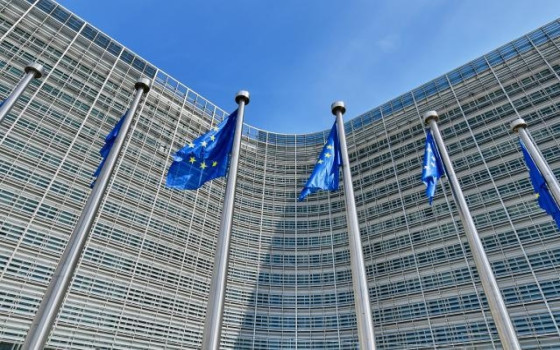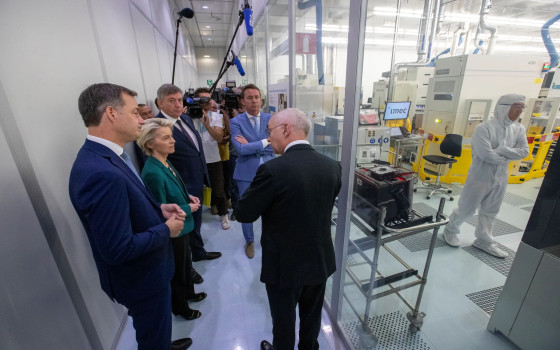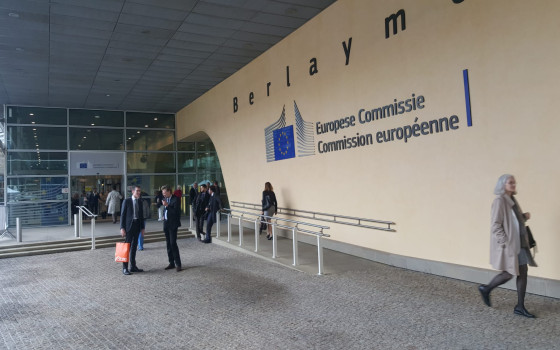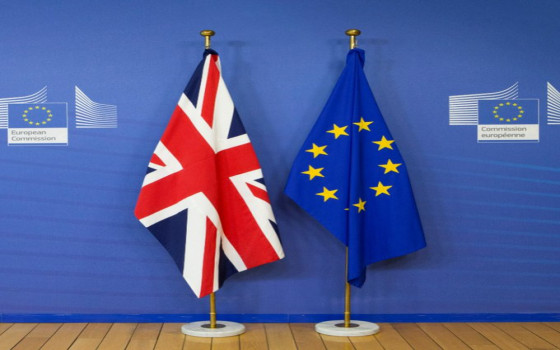The European Commission has accepted commitments submitted by Microsoft to address competition concerns related to Teams

- Europe and Arabs
- Friday , 12 September 2025 10:56 AM GMT
Brussels: Europe and the Arabs
The European Commission has accepted commitments from Microsoft to address EU competition concerns related to its popular Teams collaboration platform. These commitments will now be legally binding under EU antitrust rules. According to a statement in Brussels, these commitments address the Commission's concerns regarding the integration of Microsoft Teams with the company's popular productivity applications, such as Word, Excel, PowerPoint, and Outlook, which are included in Office 365 and Microsoft 365 for Business customers.
Under these commitments, Microsoft will:
(a) provide Teams-free versions of these suites at a reduced price; (b) allow customers with long-term licenses to migrate to Teams-free suites; (c) provide compatibility of key functionality between communications and collaboration tools that compete with Teams and certain Microsoft products; and (d) allow customers to transfer their data from Teams to facilitate the use of competing solutions.
By helping to restore fair competition, these commitments will open the market to other providers of communications and collaboration tools in Europe. Microsoft is a global technology company that offers a variety of services, including productivity and business software, cloud computing, and personal computing. Teams is a cloud-based communications and collaboration tool. It offers features such as messaging, calling, video meetings, and file sharing, combining Microsoft tools with third-party workplace tools and other applications. Business application software vendors, including Microsoft, increasingly distribute this software as software as a service (SaaS), meaning software hosted on a cloud infrastructure of the vendor's choice. Microsoft relies on a bundle-centric business model, which bundles multiple types of software into a single offering. When launching Teams, Microsoft included it by default in Office 365 and Microsoft 365, two popular SaaS productivity suites for business customers. After opening a formal investigation in July 2023, the Commission preliminarily found that (a) Microsoft holds a dominant position in the global market for SaaS productivity applications for professional use; and (ii) since at least April 2019, Microsoft has bundled Teams with its market-leading productivity applications, in violation of Article 102 of the Treaty on the Functioning of the European Union (“TFEU”) and Article 54 of the Agreement on the European Economic Area (“EEA”).
The Commission preliminarily found that Microsoft, in doing so, restricted competition in the market for cloud communications and collaboration products, giving Teams an undue competitive advantage in terms of distribution, reinforced by interoperability restrictions between Microsoft’s productivity applications (such as Outlook and Word) and communication and collaboration tools that compete with Teams. The Commission expressed concerns that Microsoft’s conduct, in addition to giving Teams an unfair advantage in entering the market and quickly gaining a strong position, may have strengthened its dominant position in productivity software and its model of focusing on bundles from competing individual software providers. After the investigation was opened, in 2023 and 2024, Microsoft introduced some changes to the way it distributes Teams. In particular, Microsoft began offering some software packages without Teams. The Commission initially found that these changes were insufficient to address its concerns, and that more comprehensive changes were needed to effectively end anti-competitive tying practices and their effects.
To address the Commission's concerns, Microsoft initially made the following commitments:
To offer customers purchasing EEA versions of Office 365 and Microsoft 365 without Teams a significantly lower price than the corresponding packages that include Teams. In addition, Microsoft committed not to offer discounts on Teams or on packages that include Teams higher than those offered on packages that do not include Teams.
To give customers purchasing in the EEA frequent opportunities to switch to software packages without Teams, and to allow these packages to be deployed in data centers around the world.
To enable Teams competitors and certain third parties to (i) effectively integrate with certain Microsoft products and services for specific functions, (ii) include Office Web Apps (Word, Excel, and PowerPoint) in their products, and (iii) prominently integrate their products into Microsoft's core productivity applications. To allow customers in the European Economic Area to extract their Teams messaging data for use in competing solutions.
Between 16 May 2025 and 16 June 2025, the Commission market tested Microsoft's commitments and consulted all interested third parties to verify whether they would address the Commission's competition concerns.
In light of the results of this market test, Microsoft modified its initial proposal and committed to:
Increase the price differential between certain Microsoft 365 and Office 365 software bundles without Teams and their corresponding bundles with Teams, including those for businesses, by 50%.
Clarify that relevant Microsoft websites advertising any software offer bundled with Teams must also display the corresponding offer without Teams.
Publish information on interoperability and data portability on all relevant developer websites.
Furthermore, the Commission notes that Microsoft has unilaterally decided to align its global bundle offers and pricing with these commitments. It also decided to continue offering non-Teams packages for frontline workers and to reduce the price of its largest software package without Teams for frontline workers compared to the version that includes Teams.
Microsoft's commitments will remain in effect for seven years, with the exception of commitments related to interoperability and data portability. It will remain in effect for ten years. A Monitoring Trustee will monitor implementation and will also mediate any disputes between third parties and Microsoft. If any third-party concerns persist, the dispute will be referred to expedited arbitration. The Monitoring Trustee will submit periodic reports to the Commission.
The Commission concluded that Microsoft's final commitments will adequately address its competition concerns regarding Microsoft's conduct. Therefore, it decided to make them legally binding on Microsoft.














No Comments Found